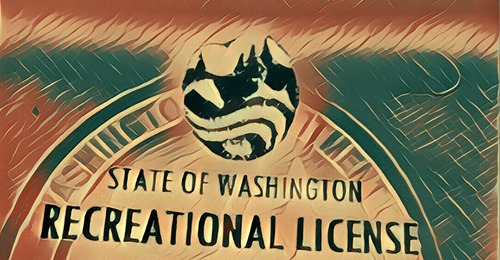Washington Senators Propose Sharp Fishing, Hunting License Fee Hikes

With a large budget deficit forecasted and calls from Olympia for reduced spending on state programs, a pair of Washington legislators have introduced a bill that would sharply increase the cost of sportsmen’s licenses, though seniors would at least get a break on the hunting side.
As currently written, Senate Bill 5583 would hike fees on popular items such as annual freshwater, saltwater, combination fishing, razor clam and deer licenses, as well as all other licenses, endorsements and catch card fees, for residents and nonresidents alike by 38 percent, a comparison of current and proposed base prices shows.
The bill is sponsored by a pair of Puget Sound convergence zone legislators, Senator Marko Liias (D-Mukilteo) and Senator June Robinson (D-Everett), and after its introduction and first reading this morning, it was referred to the upper chamber’s Agriculture and Natural Resources Committee. It would also give the Fish and Wildlife Commission new authority to establish surcharges on licenses in odd-numbered years “to fund inflationary and other increased costs approved by the legislature in the biennial budget.”
If approved by both the Senate and the House and signed into law by Governor Bob Ferguson, the fee schedule would go into effect July 1 of this year, while the commission could institute surcharges starting September 1, 2027.
It’s a somewhat unexpected bill, given that WDFW and the Fish and Wildlife Commission did not request it last year when they came up with their 2025 session wish lists for lawmakers. But now with a $12 billion shortfall projected over the coming four years and new Governor Bob Ferguson calling for a $4-plus billion reduction in state agency spending, the Office of Financial Management recently reached out to WDFW for a funding analysis, according to spokeswoman Sam Montgomery this morning.
“The governor didn’t request legislation, but we aren’t surprised to see the legislature pick this up as a possible solution,” Montgomery stated. “We’ve provided license sales data and some preliminary feedback on draft bill language at the request of legislative staff.”
She said WDFW was planning on reviewing the text of the bill today.
A spokesman for Senator Liias did not have an immediate comment on his bill, but said that the lawmaker would be “meeting with some stakeholders and others over the next few days” about it.
With WDFW’s General Fund support from sales taxes likely to take a hit this budget biennium, raising the base price of fishing and hunting licenses – which have been static since 2011 – is one way to offset some of that for the agency’s operating budget, which for the 2023-25 biennium was $723 million.
As it stands, SB 5583 would change the amount of legislatively authorized BASE license fees that WDFW charges.
Montgomery notes that base fees don’t represent the true “out-the-door cost” for anglers and hunters, as there are also 10 percent transaction and $2 license/$.50 tag dealer fees added on at checkout. For instance, the base fee for a deer tag is $39, but you walk out the door having dropped $44.90 on it.
So here is a look at how the bill today would affect the base fees of primary licenses:
Right now, the base cost of an annual freshwater license is $25.00 for residents and $5.00 for seniors, but would run $34.50 and $6.90 under the bill.
An annual saltwater license is $25.50 and $5.50, respectively, but would cost $35.19 and $7.59 under the bill.
An annual shellfish/seaweed license would go from $10.00 and $5.00 now to $13.80 and $6.90, while an annual razor clam license would rise from $8.00 to $11.04 for both residents and seniors.
Combination fishing licenses would rise from $45.50 and $15.50 to $62.79 and $21.39.
On the hunting side, a deer+elk+bear+cougar license would rise for residents from $85.00 to $117.30, but seniors would see it reduced to $39.88. Similarly, a deer license would rise from $39.00 for residents to $53.82 but drop to $18.30 for seniors.
Seniors are defined as those age 70 and older.
The cost of special permit applications, standard and quality, would rise from $6.00 and $12.00 to $8.28 and $16.56 for residents, but drop from current levels to $2.82 for seniors.
Small game licenses would increase for residents from $35.00 to $48.30 but also drop for seniors from $35.00 to $16.42.
As a reminder, Washington fishing and hunting license dollars go into the State Wildlife Account for fish and wildlife management activities; they are not diverted into the state General Fund, due to state and federal statutes related to the Pittman-Robertson and Dingell-Johnson critter restoration acts.
According to the recent Ruckelshaus Report, roughly 225,000 hunting and 963,000 fishing licenses of various types are sold annually in Washington to some 190,000 hunters and 854,000 anglers. Between those sales and PR and DJ excise taxes on gear, sportsmen directly contributed just under $100 million, or 30 percent, to WDFW’s 2019-21 budget, significant concentrated pulling strength.
Increasing the cost of anything never sits well with anyone, and coming at a time when things are not exactly cheap as well as given widespread discontent about the direction of the Fish and Wildlife Commission or WDFW, and/or both, hiking the cost of licenses may be a hard sell for lawmakers with some in the sporting public. A modest 15 percent increase in 2019 failed; a 2020 proposal from then Governor Jay Inslee never got traction. It also throws an interesting wrinkle into current dynamics.
Who knows where this one ends up, but it bears close watching. Stay tuned. And now it’s time for some lunch and me to do Actual Work.

